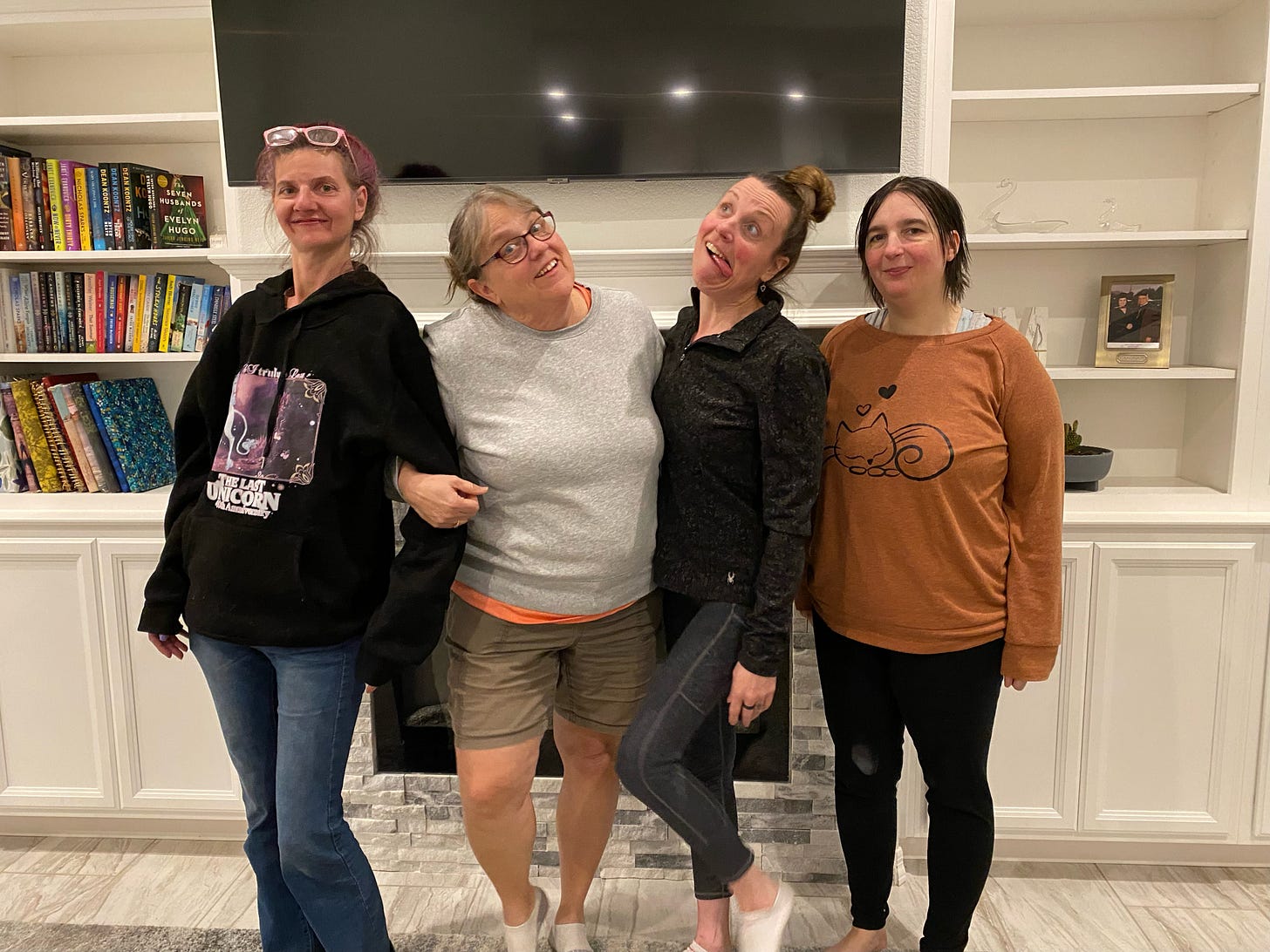🧱 Session 8: The Myth of Self-Sufficiency
🌿 Transformative Education for Neurodivergent Liberation

“There is no such thing as a single, solitary self. We are shaped by every hand that ever held us, every absence that ever hollowed us, and every system we’ve had to survive.”
— Shamani of The Compassion Collective
📌 If you’re just joining us, I recommend reading [Session 1 – Why I’m Leading This Workshop (My Positionality)] for shared agreements and to understand how this space is held.
The Myth That Keeps Us Isolated
We’ve all heard it:
“Stand on your own two feet.”
“You have to learn to be self-sufficient.”
“No one’s coming to save you.”
These phrases are treated like gospel in Western culture—especially in systems rooted in capitalism, white supremacy, and patriarchy. We’re taught that needing others is weak, that success is individual, and that autonomy is the goal.
But for many of us—especially those who are neurodivergent, disabled, chronically ill, or trauma survivors—this myth is deadly.
It tells us that the problem is us—not the environment, not the system, not the erasure of care infrastructure.
It convinces us that if we can’t do it all on our own, we’ve failed.
And it makes asking for help feel like a confession instead of a birthright.
How This Myth Harms Neurodivergent Lives
For late-diagnosed autistic adults, the myth of self-sufficiency often becomes a survival strategy before we even know we’re autistic.
We adapt. We mask. We excel.
We become high-achieving, hyper-independent, over-functioning in environments that never made space for our needs.
We internalize the idea that if we can “pass,” we should. And if we can’t, we’re the problem.
Many of us go decades without support—not because we didn’t need it, but because no one believed we did.
And by the time we do name our needs, we’ve already burned out, dissociated, collapsed, or fallen through the cracks of every institution that promised to help.
Even within ND community, we sometimes carry the residue of this myth.
We question whether someone “really needs that much support.”
We treat autonomy as the ideal, and dependence as something to be ashamed of.
We forget that the goal is not to need less—but to be better held.
Self-sufficiency is not liberation.
It’s the story the system tells you so it doesn’t have to care for you.
Interdependence Is a Radical Alternative
What if we stopped seeing support as a weakness?
What if we stopped pretending that the strongest people are the ones who carry everything alone?
Interdependence is not failure.
It’s wisdom.
It’s sustainability.
It’s survival with dignity.
When I finally began naming my needs—not apologizing for them, not shrinking them to be more palatable—I started to heal. Not just from burnout, but from the deep internalized shame of needing others at all.
I realized I was never “too dependent.”
I was just living in a culture that treats dependence like a disease.
But here’s the truth:
I regulate better when I co-regulate.
I process better when I feel safe enough to say what’s really on my mind.
I thrive in environments where people check in on each other—not because they’re obligated to, but because we belong to one another.
We are not meant to do this alone.
We are communal creatures living in individualistic systems.
And it’s that mismatch—not our needs—that’s breaking us.
🔍 Reflection: What Stories Are You Carrying?
The myth of self-sufficiency didn’t start with you.
It was planted in you—by systems that thrive when we’re disconnected.
But we get to choose what we water.
Take a moment to reflect:
When did you first learn that needing support was something to hide?
Who benefits from you doing everything alone?
What would it mean to be held—not for what you produce, but for who you are?
Let your answers live in your body. Let them shift how you ask, how you receive, how you belong.
💫 New Sessions Every Monday & Wednesday
This 12-week journey unfolds twice a week—every Monday and Wednesday—with each session building on the last.
You can view the full session lineup here, and here’s what’s coming next:
💫 Coming Next: Session 9 – Burnout Is Not a Personal Failing
We’ll explore how burnout isn’t just about doing too much—it’s about doing too much while being unseen, unsupported, and expected to survive in systems not built for us.
👇 Drop a comment if you'd like to be tagged in future sessions—or follow along at your own rhythm. This space is here for you.
💖 A Note on Support
This work will never live behind a paywall. It is here to be shared freely, co-created in community, and grounded in care.
If you're able to support this series through a paid subscription, it directly sustains the work of The Compassion Collective and allows me to keep showing up in this way—rooted in truth, access, and collective liberation.
Every subscription, every kind message, every share helps keep this space open.
❤️
Shamani of The Compassion Collective





Holy crap I needed this reminder, again, today. Thanks 💜 🙏
Yes to all of this! And can I just name one of the massive mindfucks baked into western culture around this?? Like—on the one hand, we’re told “no one’s coming to save you,” “be self-sufficient,” “do it all yourself.” Hyper-independence all the way man!
But then in the same breath it’s—trust the system, trust this company, trust the government, hand over your data, your agency, your body, your decisions—we’ll take care of it for you.
So which is it? Be radically self-reliant—or surrender everything to the machine?
It’s wild how we’re shamed for needing each other, but rewarded for outsourcing our power to institutions that do not give one shit about us. It’s not independence, it’s control.
Thanks for naming this so beautifully. I needed the reminder. And I’m sitting with the question of what real interdependence looks like when neither self-erasure nor blind trust are the answer.